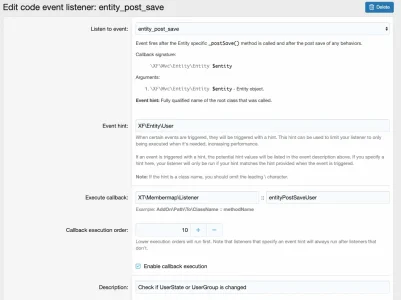mcatze
Well-known member
I build a static function in Listener where i ask if
How can i get this?
I tried
$entity->isChanged(['user_group_id', 'secondary_group_ids']) and $entity->isStateChanged('user_state', 'disabled') === 'enter', now i just want to know if a user is set banned.How can i get this?
I tried
$entity->isChanged('is_banned') and $entity->isStateChanged('is_banned', '1') === 'enter' but it doesn't work.